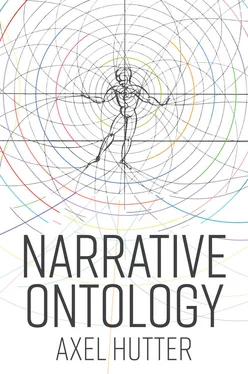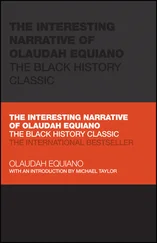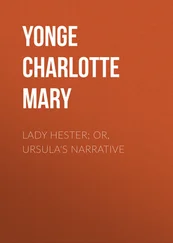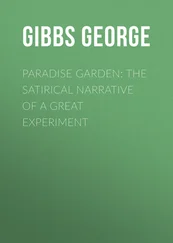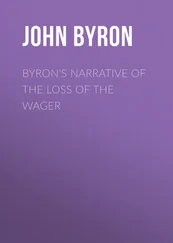1 Cover
2 Title Page Narrative Ontology Axel Hutter Translated by Aaron Shoichet polity
3 Copyright Originally published in German as Narrative Ontologie © Mohr Siebeck GmbH & Co. KG Tübingen, 2017 This English edition © Polity Press, 2022 Polity Press 65 Bridge Street Cambridge CB2 1UR, UK Polity Press 101 Station Landing Suite 300 Medford, MA 02155, USA All rights reserved. Except for the quotation of short passages for the purpose of criticism and review, no part of this publication may be reproduced, stored in a retrieval system or transmitted, in any form or by any means, electronic, mechanical, photocopying, recording or otherwise, without the prior permission of the publisher. ISBN-13: 978-1-5095-4393-9 A catalogue record for this book is available from the British Library. Library of Congress Cataloging-in-Publication Data Names: Hutter, Axel, 1961- author. | Schoichet, Aaron, translator. Title: Narrative ontology / Axel Hutter ; translated by Aaron Schoichet. Other titles: Narrative Ontologie. English Description: English edition. | Cambridge, UK ; Medford, MA, USA : Polity Press, [2021] | “Originally published in German as Narrative Ontologie, Mohr Siebeck GmbH & Co. KG Tübingen, 2017.” | Includes bibliographical references and index. | Summary: “An original work of philosophy that highlights the connection between self-understanding and narrative form”-- Provided by publisher. Identifiers: LCCN 2021016361 (print) | LCCN 2021016362 (ebook) | ISBN The publisher has used its best endeavours to ensure that the URLs for external websites referred to in this book are correct and active at the time of going to press. However, the publisher has no responsibility for the websites and can make no guarantee that a site will remain live or that the content is or will remain appropriate. Every effort has been made to trace all copyright holders, but if any have been overlooked the publisher will be pleased to include any necessary credits in any subsequent reprint or edition. For further information on Polity, visit our website: politybooks.com
4 Epigraph Not only is there no guarantee of the temporal immortality of the human soul, that is to say of its eternal survival after death; but, in any case, this assumption completely fails to accomplish the purpose for which it has always been intended. Or is any riddle solved by my surviving for ever? Is not this eternal life as much of a riddle as our present life? Wittgenstein
5 Foreword Foreword Markus Gabriel According to a widespread conception which might as well be called a worldview, reality is intrinsically meaningless. By its very nature, it is utterly foreign to our human desire to find meaning in our lives, an opaque in itself, at best explainable in terms of causal, natural-scientific models. Yet this very worldview raises the issue of how to conceive of our experience of meaning and value that seems to be constitutive of what it is to be someone, a subject or a self. Axel Hutter’s magnificent book questions this worldview by putting our quest for meaning centre stage. To be someone is not some kind of illusion hovering over the meaningless ocean of physical reality. Rather, being someone, a self, is inextricably bound up with our capacity to tell and understand stories in which we are involved. In short, Hutter rediscovers the depth of narrations without falling into the trap of accepting the meaninglessness of the universe only in order to confront it with the desperate attempt to cover up an existential void with mere myth. In that important sense, Hutter’s narrative ontology resists the romantic temptation of accepting the disenchantment by wishing to re-enchant nature. His starting point is a precise and astonishingly revealing, innovative analysis of the idea of repetition, so prominent in the existentialist tradition. He bases his insight on a philosophical reading of one of the most difficult modern novels, Thomas Mann’s late magnum opus, Joseph and His Brothers. In Narrative Ontology , he manages to demonstrate how we can overcome nihilism by way of drawing on Mann’s insight that we always have to tell and retell stories that are transmitted to us so as to resonate with the core of human subjectivity, i.e., our capacity to lead a life in light of a conception of ourselves. Subjectivity is the indispensable starting point of every enterprise of making sense of what it means for us to exist, which includes the incoherent attempt to reject the very idea of meaningfulness. Hutter’s book not only offers a convincing and, in many respects, pathbreakingly novel account of a narrative ontology of the self, but at the same time provides the reader with an account of normative self-constitution, of what we call ‘Geist’ in our neck of the woods. Narrative Ontology is a mature and important piece of contemporary philosophy in Germany, a work that equally addresses issues in the theory of subjectivity, normativity and general ontology. Given the importance of the issues dealt with in the pages that follow and the innovative way of dealing with them, I hope that the book will receive the reception it deserves also in the English-speaking world.
6 Preface Preface The present enquiry devotes itself critically to the three ideas that have belonged since time immemorial to the heart of philosophical reflection: freedom, God and immortality. Their inherent connection has disappeared from our thought. We barely pay attention to the latter two, and the inflationary use of the first one (as compensation, as it were) has made it as vacuous as the others. This enquiry’s critical aim is thus to remind philosophy of its genuine task: only in understanding itself as a mode of human self-knowledge that articulates itself in these three ideas will philosophy do justice to its own concept. For the critical discussion of the central ideas of self-knowledge, the book sees in Thomas Mann an ally whose novel Joseph and His Brothers has more to say about freedom, God and immortality than does academic philosophy of the present era. The enquiry places itself between all positions so that anyone who picks it up can, without difficulty, identify what it is not . The professional philosopher who expects an academic treatise on ontology will find fault in the fact that it deals for long stretches with Thomas Mann’s Joseph novel. The scholar of German studies who expects an academic treatise on Thomas Mann will find fault with the fact that it pursues for long stretches speculative – indeed metaphysical – thoughts. For these reasons, the present work will deliberately refrain from an explicit treatment of secondary literature. This is because the philosophical enquiry does not aim to talk about Thomas Mann but, rather, in a narrative manner, about that which he himself talks about: the thought that the meaning of human freedom consists in living in similitude . This thought is admittedly not easy to understand, for understanding it requires having a justified judgement whether it is true or not. Such an insight can be gained, however, only within the framework of a philosophical enquiry.
7 Introduction The Art of Self-Knowledge The Art of Self-Knowledge 1 Self-Knowledge 2 The Intangibility of the I 3 Who’s Speaking? 4 Narrative Meaning 5 Meaning and Being 6 The Project of a Narrative Ontology 7 The Truth of Art 8 Thomas Mann as Model 9 The Enigma of Human Being 10 Freedom 11 Selfhood as Character
Self-Knowledge The Intangibility of the I Who’s Speaking? Narrative Meaning Meaning and Being The Project of a Narrative Ontology The Truth of Art Thomas Mann as Model The Enigma of Human Being Freedom Selfhood as Character Notes
8 Part One The Stories of Jacob 1 The Ambiguity of the I The Leitmotif The Original Scene Readings The Unrest of the Blessing Identity of Form and Content The Narrative Decentring of the I Coined Archetypes Isaac’s ‘Blindness’ Selfhood as Self-Understanding Notes 2 The World Theatre The Thought-Model of the Actor The World as Stage History Meaning of Life? The Author as Narrator and Reader Meaning as Happiness or Happiness as Meaning Connecting Thoughts Cain and Abel The Role of Human Being The Dignity of Universality Humanity in Each Person Notes 3 Narrative Irony Deception and Disappointment Leah Day and Night Nonsense Jacob’s Four Deceptions The Denied Sacrifice Dialectic of Spiritual Inheritance Hope Joseph’s Gift Mercy of the Last Deception Notes
Читать дальше
